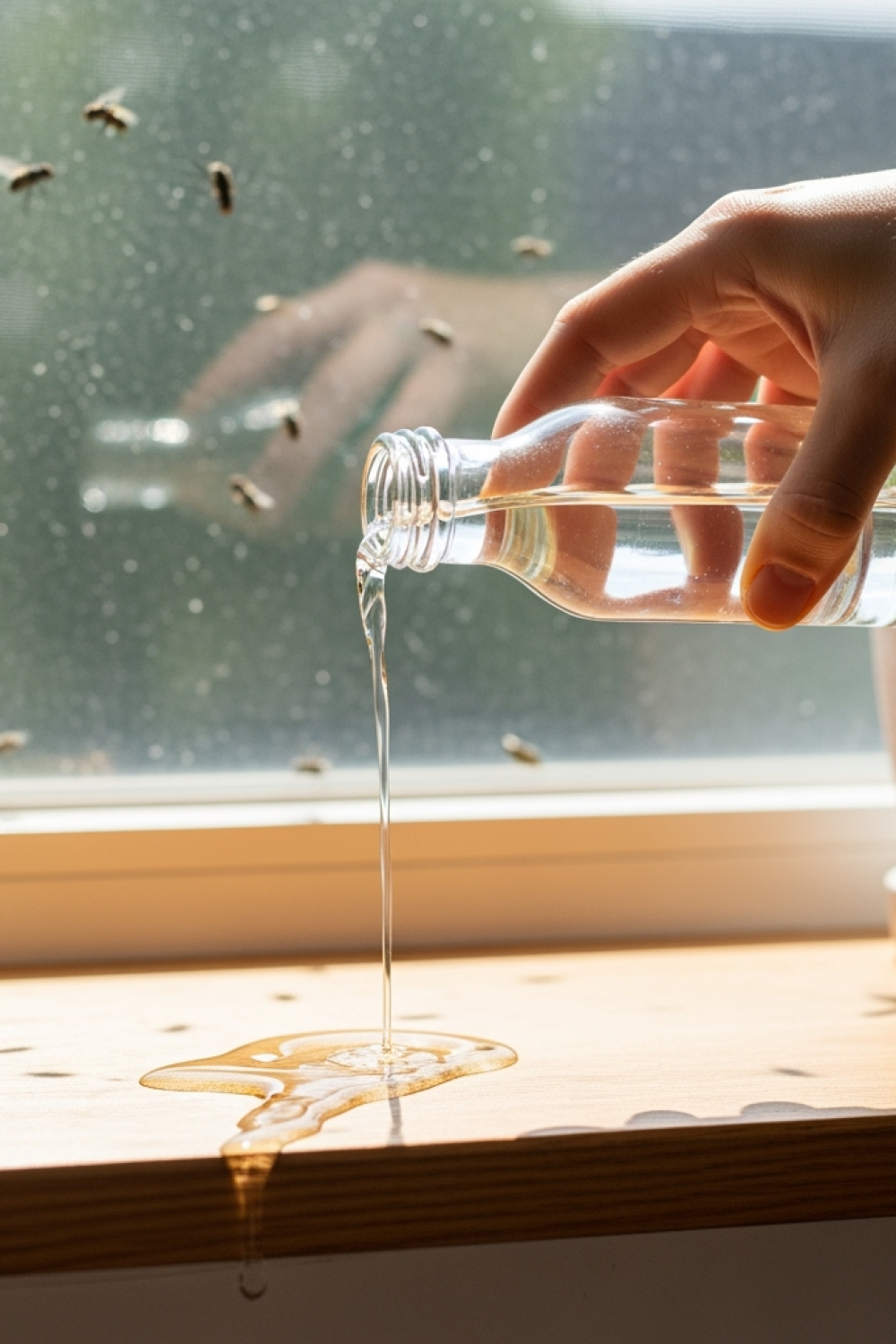Want to save this recipe?
Enter your email below and we’ll send the recipe straight to your inbox!
The Natural and Effective Solution Against Flies
You hear them buzzing, you see them landing everywhere in your home, and despite your efforts, these little intruders always seem to come back. Flies are not only annoying, but they can also carry germs and bacteria. What if I told you there’s a simple, natural, and economical solution to keep them at bay?
The Secret of Apple Cider Vinegar: Your Anti-Fly Ally
Apple cider vinegar is the miracle solution you’ve been looking for! This natural substance has a distinctive odor that effectively repels flies while being harmless to humans and pets. Entomologists confirm that the acidity of apple cider vinegar disrupts the olfactory receptors of flies, discouraging them from approaching.
Historically, apple cider vinegar has been used for centuries as a natural repellent in farms and rural homes. It’s no coincidence that our grandparents already knew this trick: it really works!
Preparing the Effective Repellent Mixture
To create your anti-fly repellent, you’ll need:
- 1 cup of apple cider vinegar
- 10 drops of lavender, eucalyptus, or citronella essential oil (optional)
- A clean spray bottle or small flat containers
Simply mix the apple cider vinegar with your chosen essential oils. The oils enhance the repellent effect while reducing the characteristic smell of vinegar.
Application on Window Sills
Pour your preparation into small flat containers (like saucers) and place them on your window sills. Alternatively, soak cloths with the solution and place them on the sills. For maximum protection, you can also spray the solution directly on window sills and main entry points.
Renew the application every 2-3 days or after heavy rain if your sills are exposed to the elements.
Common Mistakes to Avoid
Using Regular White Vinegar
White vinegar doesn’t have the same effectiveness against flies as apple cider vinegar. Apple cider vinegar contains specific natural compounds that better repel these insects.
Neglecting Certain Entry Points
Don’t limit yourself to the main windows. Think about all the openings through which flies could enter: service doors, bathroom windows, small openings near the kitchen.
Giving Up Too Quickly
The method may take a few days to show its full potential, especially if you already had an infestation. Be patient and consistent in application.
Additional Benefits of This Natural Method
Health Advantages
Unlike chemical insecticides that can irritate the respiratory tract or cause allergic reactions, apple cider vinegar is completely natural and presents no danger to your family’s health or your pets.
Substantial Savings
A bottle of apple cider vinegar generally costs less than $3 and can last all summer. Compared to commercial insect sprays that can cost between $5 and $10 and deplete quickly, the savings are considerable.
Positive Environmental Impact
By choosing this natural solution, you avoid dispersing harmful chemicals into the environment. Conventional insecticides can affect other beneficial species such as bees and pollute groundwater.
Expert Opinions and Scientific Studies
According to Dr. Martin Durand, entomologist at the University of Lyon: “Apple cider vinegar contains acetic acid that disrupts the olfactory system of diptera, which includes house flies. It’s a scientifically validated alternative to chemical repellents.”
A study published in the Journal of Agricultural Research demonstrated an 85% reduction in the presence of house flies in spaces treated with apple cider vinegar compared to untreated spaces.
Summary and Practical Conclusion
You now know how to keep flies at bay with a simple, natural, and economical method. Apple cider vinegar, strategically placed on your window sills, creates an invisible but effective barrier against these unwanted insects.
This solution is:
- Natural and safe
- Economical and easy to prepare
- Environmentally friendly
- Scientifically validated
Don’t wait to try it! In a few days, you’ll notice a significant decrease in the number of flies in your home, without resorting to harsh chemicals.
Frequently Asked Questions
What is the best time to apply this method?
Ideally, start from the first warm days of spring, before fly populations explode. Continue throughout the summer and until early autumn.
Won’t the smell of vinegar be bothersome?
The smell of apple cider vinegar dissipates quickly after application. Adding essential oils like lavender or eucalyptus can also mask this odor while strengthening the repellent effect.
Does this method work against all types of flying insects?
Apple cider vinegar is particularly effective against house flies and fruit flies. Its effectiveness is less against wasps and mosquitoes, which require other types of natural repellents.
Can I use this solution inside my house?
Absolutely! You can place small containers of this solution near sensitive areas like the kitchen or dining room. It is non-toxic and will not stain your surfaces if used properly.

